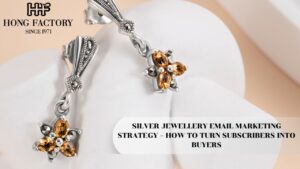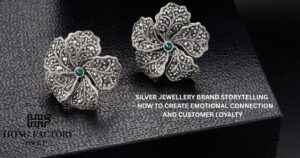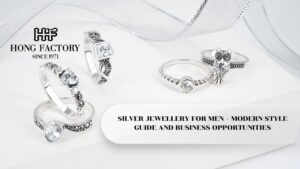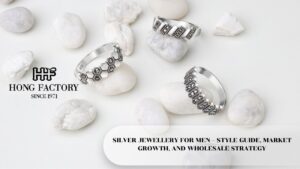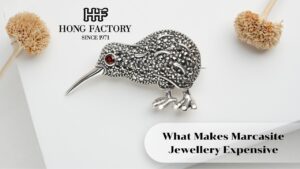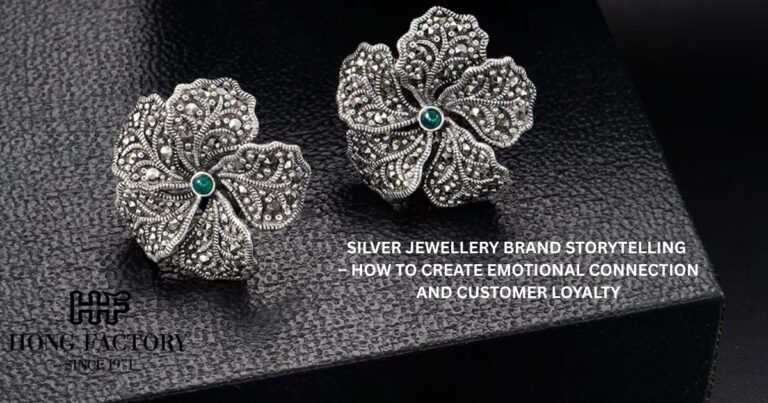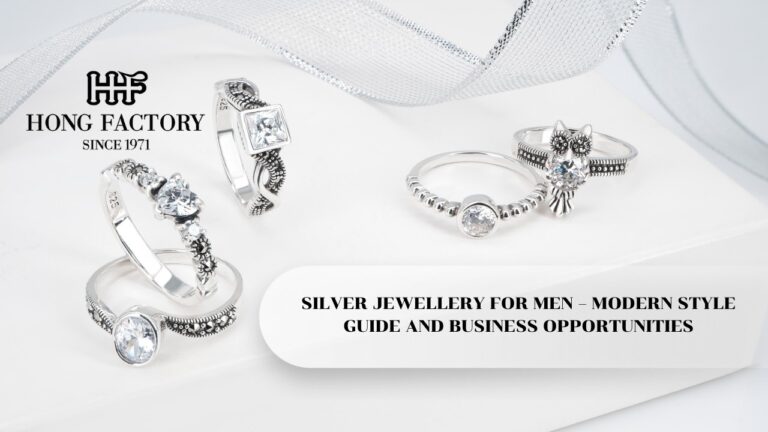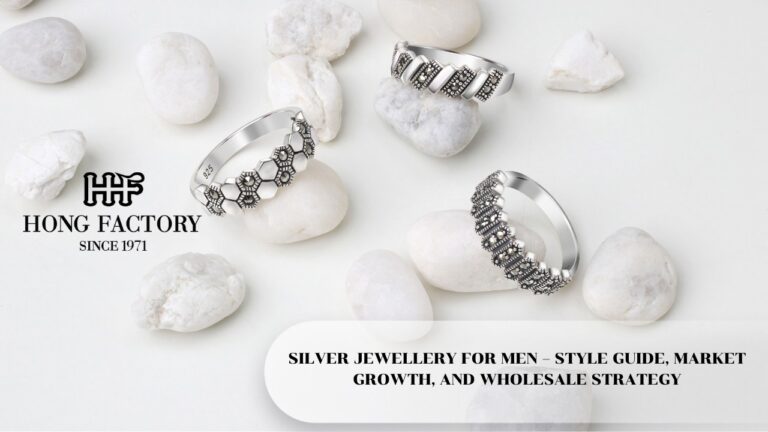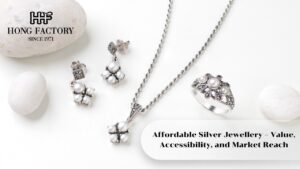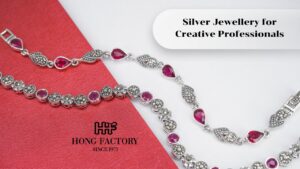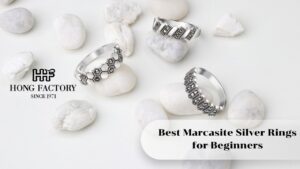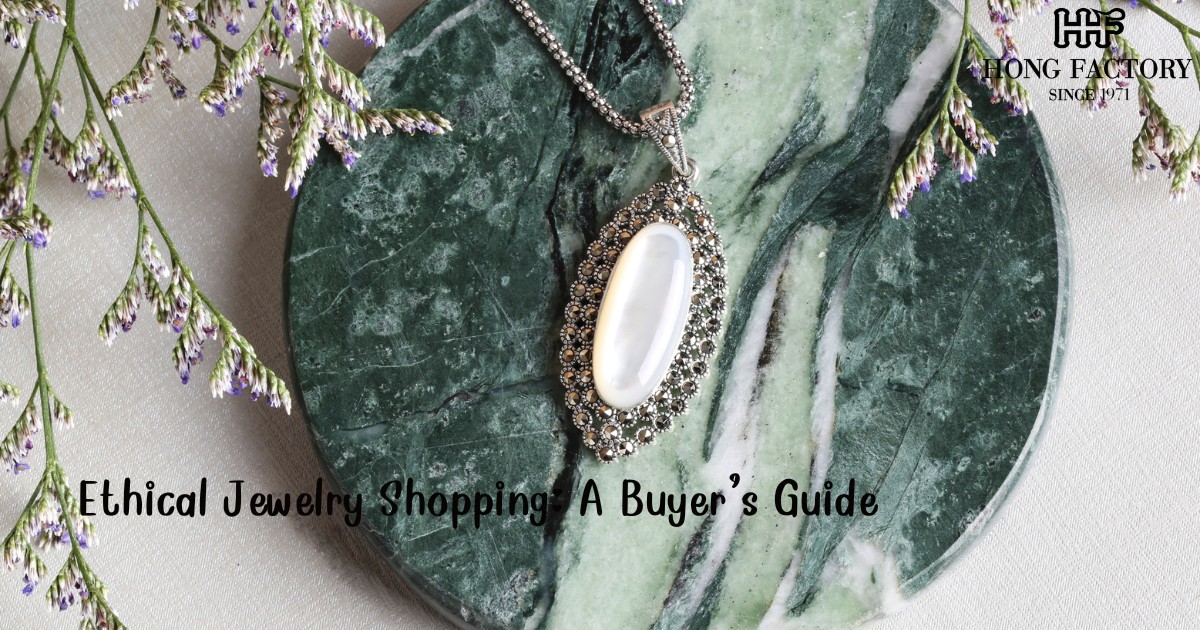
As consumers become more conscious of the environmental and social impact of their purchases, ethical jewelry shopping has gained significant attention. Ethical jewelry refers to pieces that are sourced, produced, and sold in ways that minimize harm to people and the planet.
Whether it’s conflict-free diamonds, fair-trade gold, or sustainable gemstones, making informed choices ensures that your jewelry aligns with your values. This guide explores what ethical jewelry is, why it matters, and how you can shop responsibly. Ethical Jewelry Shopping
Ethical Jewelry Shopping: A Buyer’s Guide
1. What Is Ethical Jewelry?
Ethical jewelry encompasses several key principles:
- Fair Labor Practices: Ensuring that workers in mines and jewelry workshops are paid fairly and work in safe conditions.
- Conflict-Free Sourcing: Avoiding diamonds and gemstones that fund violence or human rights abuses (e.g., “blood diamonds”).
- Environmental Responsibility: Reducing the environmental impact of mining through sustainable practices and eco-friendly alternatives.
- Transparency: Companies openly sharing information about their supply chains, sourcing, and ethical practices. Ethical Jewelry Shopping
2. Why Ethical Jewelry Matters
- Human Rights Protection: Many mining operations exploit workers, including child labor and unsafe conditions.
- Environmental Sustainability: Traditional mining causes deforestation, water pollution, and habitat destruction.
- Economic Impact: Supporting fair-trade jewelry helps small-scale miners and artisans earn a fair wage. Ethical Jewelry Shopping
- Consumer Influence: Ethical purchasing decisions encourage more brands to adopt sustainable practices.
3. Key Certifications to Look For
When shopping for ethical jewelry, look for certifications that guarantee responsible sourcing and fair labor conditions:
- Fairtrade Gold: Ensures that gold is mined under safe working conditions with fair wages.
- Kimberley Process Certification: Aims to eliminate conflict diamonds from the global supply chain.
- Responsible Jewelry Council (RJC): Sets ethical, human rights, and environmental standards for the jewelry industry.
- SCS Recycled Metals Certification: Verifies that metals used in jewelry are 100% recycled.
- Fairmined Certification: Guarantees that gold and precious metals are responsibly mined by small-scale communities.
4. Ethical Alternatives to Traditional Mining
- Lab-Grown Diamonds: Created in controlled environments, they have the same chemical composition as natural diamonds but without the negative social and environmental impact.
- Recycled Gold and Silver: Repurposing old metals reduces the need for mining.
- Vintage and Second-Hand Jewelry: Buying pre-owned jewelry supports sustainability by giving existing pieces a new life.
- Sustainable Gemstones: Ethically sourced gemstones, such as fair-trade sapphires and conflict-free emeralds. Ethical Jewelry Shopping
5. How to Identify Ethical Jewelry Brands
- Transparency: Ethical brands disclose sourcing and production details.
- Certifications: Look for the ethical certifications mentioned above.
- Sustainability Practices: Brands that use recycled metals, eco-friendly packaging, and carbon offset programs.
- Fair Wages and Safe Labor: Companies committed to ethical working conditions in mines and factories.
- Direct Trade with Artisans: Supporting handmade jewelry from indigenous and fair-trade artisans.
6. Questions to Ask Before Purchasing Ethical Jewelry
1. Where are the materials sourced from?
2. Are the gemstones conflict-free and ethically mined?
3. Does the brand follow fair-trade practices?
4. What sustainability measures does the company take?
5. Are metals recycled or newly mined?
6. What ethical certifications does the brand hold?
7. Where to Buy Ethical Jewelry
- Fair-Trade Jewelry Brands: Companies specializing in responsibly sourced materials.
- Vintage and Antique Shops: Pre-owned jewelry that reduces the demand for new mining.
- Lab-Grown Diamond Retailers: Jewelers offering sustainable and conflict-free diamonds.
- Artisan Markets: Handmade jewelry crafted by ethical and fair-wage artisans.
8. The Future of Ethical Jewelry
The demand for ethical jewelry continues to grow, encouraging brands to adopt sustainable practices.
Innovations such as blockchain technology for transparent supply chains, improved fair-trade mining initiatives, and eco-friendly jewelry production are shaping the industry’s future.
Ethical jewelry shopping allows you to enjoy beautiful pieces while supporting fair labor, environmental sustainability, and responsible sourcing. B
y choosing conflict-free diamonds, fair-trade metals, and sustainable gemstones, you can make a positive impact on the jewelry industry.
Educating yourself about ethical brands and certifications will help you make informed purchases that align with your values.
